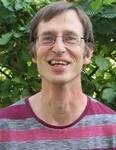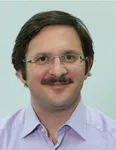
Combining study and practice: To help our students apply mathematics during their education, we offer case studies as a module for master's students. Here, you put into practice what you learn in the lectures – in real projects with a high degree of personal responsibility and design options.
The first step is to understand a practical challenge and then model and analyze it in small teams. The students then develop and implement suitable solutions. In the process, our department also cooperates with external partners.
We offer case studies in the areas of: Life Sciences, Optimization and Scientific Computing
Case Studies in the Summer Semester 2025
In the summer semester 2025 we will offer case studies in Life Science Mathematics, Optimization, and Scientific Computing.
A joint information event for all three courses with details on the projects, prerequisites, and the application procedure has taken place on 06 February 2025. You may download a shortened version of the presentation slides for an overview in case you could not attend in person.
The application website is now open, the application deadline was Mon 17 March 2025. You will receive information on whether we can offer you a spot between 24 March and 7 April. If you receive an offer, please confirm as fast as possible as we would otherwise offer the spot to other students after a few days.
Important Dates for the Summer Semester 2025
Case Studies Optimization
Applicants for the Case Studies Optimization please make sure to save the following dates:
- kick off: Wednesday, 23 April 2025, starting around 16:15
- poster workshop: tba
- poster presentation: Friday, 13 Juni 2025 12:00 - 15:00
- final workshop: presumably Monday/Tuesday 14/15 July 2025 starting around 16:00 on each day
Applications for the Summer Semester 2025
Applications for the Case Studies Life Science Mathematics, Optimization, and Scientific Computing for the summer semester 2025 was open until 17. March 2025. You will hear back from us on your application between 24 March and 07 April.
Students start their project work in small teams. They get to know the project partners, jointly plan the project goals and the concrete procedure, draw up a schedule and assign responsibilities. Regular consultations with the supervisors ensure that the mutual expectations of the project are aligned and that the goals set are realistic.
While the participants are already working on the problem, they prepare a presentation of their project and first results in the form of a poster. In doing so, they show that they are able to present scientific facts in a generally understandable way – without sacrificing any precision in their statements. The teams present their posters at a special event.
The highlight and conclusion of the case studies is a scientific workshop. Here, the students present their results in a lecture followed by discussion. In the case studies fields "Scientific Computing" and "Life Sciences Mathematics", each team explains its approach and the core results of the project work in a final report.
Become a Cooperation Partner
Do you have a project that is suitable for students? We welcome partners from universities, research institutions and companies interested in research and development in the fields of optimization, scientific computing or life sciences. We will be happy to check whether a cooperation is suitable. Please contact Dr. Florian Lindemann.
Case Studies: Life Science Mathematics
In the Case Studies: Life Science Mathematics module, students model a biological system in small groups of 2 to 4 – largely independently – using methods we teach in our biomathematics and biostatistics classes. In small groups, students receive intensive and individualized mentoring and support.
We offer introductions to soft skills, such as presentation techniques and literature research. In addition, you will acquire and try out skills in organizational and project work if you participate.
Module description: Case Studies: Life Science Mathematics (MA5616)
Focus and Goals
We place a special emphasis on combining mathematics with a concrete application from the life sciences and the according training. The projects are mainly current interdisciplinary projects, which the students carry out in collaboration with groups from different TUM departments, other research institutions and clinics.
As a biomathematician you will always work in interdisciplinary teams. In doing so, you will have to consider and learn other technical languages. In addition, we like to offer you the opportunity to try out your own ideas or implement them in practice-relevant projects during your mathematics studies. To this end, we have been organizing practice-oriented seminars in the life sciences for many years. In 2016, we adopted the concept of case studies in optimization, which implements exactly these ideas.
Case Studies: Optimization
Case studies in optimization includes both projects in discrete and in nonlinear optimization. During every summer semester, students in these courses experience what it means
- to apply complex mathematical methods to real-world problems,
- to work together with companies from research and industry, and
- to present their ideas and results in public.
This involves first understanding a practical challenge, then modeling and analyzing it in small teams. The students then develop and implement suitable solutions. In the process, our department usually cooperates with external partners.
Module description: Case Studies Optimization (CIT413042)
Case Studies: Scientific Computing
The module "Case Studies: Scientific Computing" prepares students for future work in an interdisciplinary environment. For this purpose, they work on a project in the form of a practical task from the natural sciences and technology. The case studies normally take place once a year. We cooperate with other TUM departments, non-university research institutions and industry partners. The topics of the projects – from areas such as autonomous driving, simulation of novel materials, analysis of real-time capable control systems – are determined by the cooperation partners.
Module description: Case Studies: Scientific Computing (MA4306)
Procedure and Goals
Groups of 3 to 4 students work on a project task. In order to practice interdisciplinary cooperation, at least one participant should not study mathematics. In the case studies, they work on the individual projects in all its aspects. This includes
- a precise formulation of the problem,
- determining the resources required for the process in the sense of project management,
- the mathematical modeling and selection of the mathematical techniques required for solving the problem,
- their practical application and adaptation to the concrete problem, and
- the professional presentation of the achieved results in a final report and the associated oral presentation to a larger audience.
All steps of the project work promote the students' ability to communicate and cooperate through teamwork. Together they find a common language and reflect on group processes. At the same time, they update already acquired specialist knowledge and skills and apply them practically and concretely – especially from an interdisciplinary point of view.
Practice and Career for Mathematics Students
The Department of Mathematics offers you further opportunities to gain practical experience during your studies.
The TUM Data Innovation Lab (TUM-DI-LAB) is aimed at Master's students who want to research data-driven methods for interdisciplinary practical tasks. Every semester, the Lab offers new projects.
In order for our students to learn how to work in an application-oriented way during their bachelor studies, we offer them Case Studies of Mathematical Modelling.




